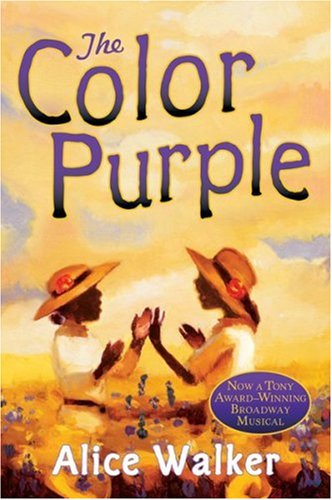All Nonfiction
- Bullying
- Books
- Academic
- Author Interviews
- Celebrity interviews
- College Articles
- College Essays
- Educator of the Year
- Heroes
- Interviews
- Memoir
- Personal Experience
- Sports
- Travel & Culture
All Opinions
- Bullying
- Current Events / Politics
- Discrimination
- Drugs / Alcohol / Smoking
- Entertainment / Celebrities
- Environment
- Love / Relationships
- Movies / Music / TV
- Pop Culture / Trends
- School / College
- Social Issues / Civics
- Spirituality / Religion
- Sports / Hobbies
All Hot Topics
- Bullying
- Community Service
- Environment
- Health
- Letters to the Editor
- Pride & Prejudice
- What Matters
- Back
Summer Guide
- Program Links
- Program Reviews
- Back
College Guide
- College Links
- College Reviews
- College Essays
- College Articles
- Back
The Color Purple by Alice Walker
Dear Fairfield Public Schools,
I believe that The Color Purple should not be banned from Fairfield classrooms. Reading the story is an opportunity for students to learn based on a format and subject quite different than they are used to. Some may argue that The Color Purple sets a bad example for students, but that opinion needs to be taken into perspective.
Although The Color Purple is unquestionably a story of abuse and foul behavior, Alice Walker does not condone spousal abuse or racial violence any more than Salinger condones underage drinking, rampant sex, and breaking stuff. While it may be far too pretentious to claim that Walker is only “telling it like it is”, striking this book from the record is really just censorship under the pretenses that it’s protecting children’s innocence. When looked at closely, the book isn’t even that bad. The word “n*****” is used far fewer times than in Mississippi Trial, 1955, which we read in the 7th grade. It has far less sex in it than Brave New World. If the book’s serious nature were any reason to ban it from the curriculum, then all these works would have to go to.
One of the more surprising “charges” against The Color Purple was the fact that the ending is unfittingly happy for such a grave book. What is this animosity towards happy endings? Surely parents would approve of Travis executing Old Yeller, or the titular Velveteen Rabbit being immolated after comforting a sick child. They simply can’t allow Celie to be reunited with her long lost children and sister. Random endings are often what make books most believable, giving a sort of “stranger than fiction” quality. Nettie’s return is just as random as the Royal Marines suddenly appearing on the shores of the Ship-Island, or The Boy finding the only friendly man in the world just as soon as The Man has died. Walker’s ending is definitely sudden, although it only seems fair that Celie _____ catches a break for once in her life.
Since The Color Purple is written in quasi-diary-esque fashion, and Celie is totally uneducated, Walker could’ve taken even more of a poetic license and made every word phonetic. However, she did not, and people still complain. We have all known how to spell “asked” since kindergarten, so it’s ridiculous to claim the book is a bad influence on this front, or even influential at all. Walker is aware of the confusion caused by the strange spellings, and she makes it so Celie knows how to spell “rummage” but still mixes “climb” up with “clam.” Once again, this book is not the first culprit to tread the path of “poor taste.” Adventures of Huckleberry Finn, another timeless, N-word filled classic is written in the Southern dialect analogous to Celie’s black dialect. Even a much more modern piece, The Help, is written with the same vernacular in mind. Both The Color Purple and The Help were adapted for film, in which the “poor writing skills” became nothing more than an appropriate accent.
Lastly, in the spirit of the unofficial relationship between English and History classes, The Color Purple’s African storyline coincides with information we’d learned earlier in the year in Modern Global, about King Leopold’s dream, the treachery of Henry Stanley, and the atrocities of their Congo Free State. Surprisingly, very few primary sources were available for study. Even though Walker completely made up the Olinka people, it was interesting to see the demise of the African continent through the eyes of someone who had previously seen how promising the culture was, especially an American missionary, and build on what we’d already learned.
Henceforth, I think The Color Purple should not be banned from the curriculum in Fairfield English classes. It is a shame that such a worldly, eye-opening book has been slandered to be nothing more than a disastrous tale of woe. It is my hope to see this tenet completely reversed.
Similar Articles
JOIN THE DISCUSSION
This article has 0 comments.

